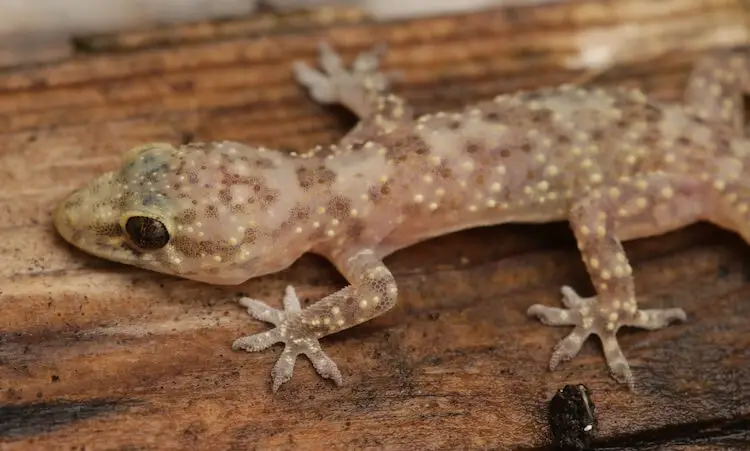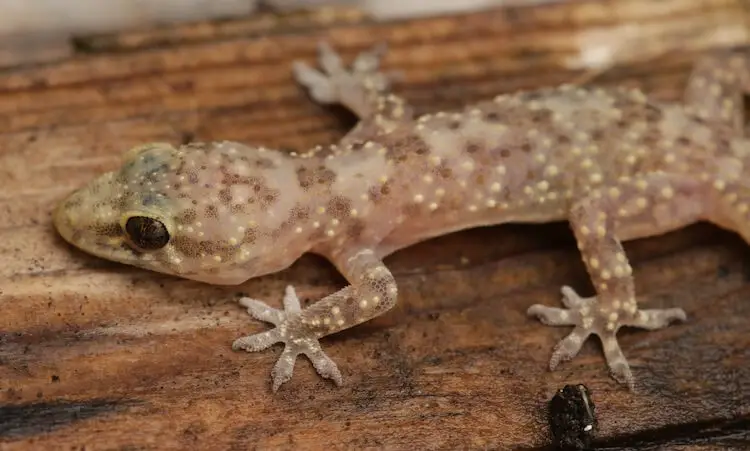Are you a fan of Mediterranean house geckos? These adorable little creatures are a common sight in many households, but have you ever wondered if they bite? While they may look harmless, it’s natural to be cautious around any animal. In this article, we’ll explore whether or not Mediterranean house geckos bite and what you can do to stay safe around them.
Mediterranean house geckos are fascinating creatures that have become popular pets in recent years. However, many people are wary of these lizards because they are unsure if they pose a threat. In this article, we’ll dive into the world of Mediterranean house geckos and answer the question on everyone’s mind: do they bite?
Yes, Mediterranean House Geckos do have the ability to bite humans, but they rarely do so. Their bites are not venomous and usually don’t break the skin. However, if you do get bitten, make sure to wash the area with soap and water to prevent any infections. It’s important to remember that geckos should not be handled or provoked as it stresses them out and may lead to defensive behavior.

Do Mediterranean House Geckos Bite?
If you have seen a Mediterranean house gecko in your house or backyard, you may be wondering whether they are dangerous. These small lizards are common in warm climates and can often be found in homes or buildings. So, do Mediterranean house geckos bite?
Identification of Mediterranean House Geckos
Mediterranean house geckos are small lizards that are typically between 3-6 inches long. They have a flat body with a pointed snout, large eyes, and a long tail. These geckos are typically light brown or gray in color and have distinctive black spots on their body.
Mediterranean house geckos are nocturnal creatures and are often found in homes, buildings, and other man-made structures. They are attracted to light and can often be seen on walls or ceilings near light sources.
Do Mediterranean House Geckos Bite?
The good news is that Mediterranean house geckos are not dangerous to humans. They are not venomous and their bite is not harmful. In fact, they are harmless to humans and can actually be beneficial as they eat insects and other small pests that can be found in homes or buildings.
While Mediterranean house geckos are not harmful to humans, they can bite if they feel threatened or cornered. However, their bite is not painful and is more like a pinch than a bite. If you do get bitten by a Mediterranean house gecko, simply wash the area with soap and water to prevent any infection.
Benefits of Having Mediterranean House Geckos Around
While some people may find Mediterranean house geckos to be a nuisance, they can actually be beneficial to have around. These geckos are natural pest controllers and will eat a variety of insects and other small pests that can be found in homes or buildings.
Having Mediterranean house geckos around can also help to control mosquito populations, as they will eat mosquitoes and their larvae. In addition, they are harmless to humans and do not cause any damage to homes or buildings.
How to Get Rid of Mediterranean House Geckos
If you do not want to have Mediterranean house geckos around, there are several ways to get rid of them. The first step is to seal any cracks or openings in your home or building to prevent them from entering. You can also use sticky traps or other types of traps to catch them.
Another option is to use natural repellents, such as mothballs or garlic, to deter them from entering your home or building. However, it is important to note that these repellents may not be effective and can be harmful to pets or children.
Mediterranean House Geckos Vs Other Geckos
Mediterranean house geckos are just one of many species of geckos that can be found in homes or buildings. While they may look similar to other geckos, there are some key differences between them.
One of the main differences is that Mediterranean house geckos are nocturnal creatures, while other geckos may be active during the day. In addition, Mediterranean house geckos are typically smaller than other geckos and have a flatter body shape.
Conclusion
In conclusion, Mediterranean house geckos are not dangerous to humans and their bite is not harmful. While they may be a nuisance to some, they can actually be beneficial to have around as they eat insects and other small pests. If you do not want to have Mediterranean house geckos around, there are several ways to get rid of them, but it is important to note that natural repellents may not be effective and can be harmful to pets or children.
Frequently Asked Questions
Here are some frequently asked questions about Mediterranean house geckos and whether or not they bite.
Do Mediterranean house geckos bite?
Yes, Mediterranean house geckos are capable of biting humans, but it is rare. Their bites are not venomous and do not pose any serious threat to humans. In fact, they are more likely to run away or hide when they feel threatened rather than bite.
Mediterranean house geckos are typically shy and prefer to avoid humans. They are most active at night when they come out to hunt insects and other small prey. If you do come across a Mediterranean house gecko, it is best to leave it alone and let it go about its business.
Are Mediterranean house gecko bites dangerous?
No, Mediterranean house gecko bites are not dangerous to humans. Their bites may cause some minor pain, swelling, and redness, but they are not venomous and do not transmit any diseases. If you are bitten by a Mediterranean house gecko, simply clean the wound with soap and water and apply a cold compress if necessary.
It is important to note that some people may have an allergic reaction to the saliva of Mediterranean house geckos, which can cause more severe symptoms such as itching, hives, or difficulty breathing. If you experience any of these symptoms after being bitten, seek medical attention immediately.
What should I do if I get bitten by a Mediterranean house gecko?
If you are bitten by a Mediterranean house gecko, wash the wound with soap and water and apply a cold compress to reduce swelling. If the bite is bleeding, apply pressure with a clean cloth until the bleeding stops. Monitor the wound for signs of infection, such as increased pain, redness, or pus, and seek medical attention if necessary.
It is important to note that while Mediterranean house gecko bites are not serious, it is still best to avoid handling or disturbing them to prevent any potential bites or injuries.
How can I prevent Mediterranean house gecko bites?
The best way to prevent Mediterranean house gecko bites is to avoid handling or disturbing them. They are typically shy and prefer to avoid humans, so it is best to let them go about their business. If you need to remove a Mediterranean house gecko from your home or property, it is best to call a professional pest control service.
You can also prevent Mediterranean house gecko bites by keeping your home clean and free of insects, which are their primary food source. Seal any cracks or holes in your home’s foundation or walls to prevent them from entering your home.
Are Mediterranean house geckos harmful to humans?
No, Mediterranean house geckos are not harmful to humans. They are not venomous and do not transmit any diseases. In fact, they can be beneficial to have around as they help control insect populations. However, if you have a large infestation of Mediterranean house geckos in your home, it is best to call a professional pest control service to prevent any potential damage or nuisance.
As with any wild animal, it is best to avoid handling or disturbing Mediterranean house geckos to prevent any potential bites or injuries.
The Mediterranean House Gecko
In conclusion, Mediterranean house geckos are not known for biting humans. While they may bite if they feel threatened or cornered, it is extremely rare for them to do so. These geckos are generally harmless and are more likely to run away or hide when they feel threatened.
If you do encounter a Mediterranean house gecko in your home or yard, it is best to leave it alone and allow it to go about its business. These geckos are beneficial to have around as they help control insect populations and are interesting creatures to observe.
Overall, while it is possible for a Mediterranean house gecko to bite, it is highly unlikely and should not be a cause for concern. With their unique appearance and helpful nature, these geckos are a welcome addition to any home or outdoor space.


